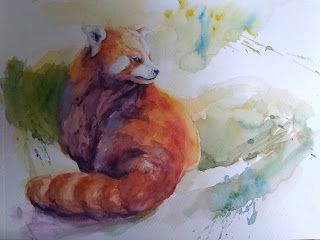Decolonizing Methodologies
Linda Tuhiwai Smith. (2001). 4th ed. New York: Palgrave.
Historically research about indigenous culture benefited those who "wielded it as an instrument" and the knowledge was not shared with the indigenous peoples. [This reminds me of the privatization of indigenous knowledge through the patent system (Hardt & Negri, 2004)] Under the influence of imperialism, research became institutionalized through scholary networks such as university transplantations, not through academic disciplines. The majority of researchers were rather like travelers who had curiosity toward the indigenous and spread the tales to the Western society, and moreover, knowledge gained through research was constructed around the Western bias. (pp.1-18).
As one of the discourses of imperialism, the author categorizes post-colonialism or globalization as a discursive field of knowledge such that colonialism is not a finished business yet, which brings with new ways of exploration about the subject. Her brief insight of the imperial structure which regulates and legitimates the practices is that it was a process of systematic fragmentation that disconnects the indigenous from their histories, languages, relations to the world, etc. She says, "History is about power," in that through the power the indigenous were marginalized from the history, and states that 'coming to know the past' has been incorporated into the critical theory of decolonization. (pp.19-41).
Historically research about indigenous culture benefited those who "wielded it as an instrument" and the knowledge was not shared with the indigenous peoples. [This reminds me of the privatization of indigenous knowledge through the patent system (Hardt & Negri, 2004)] Under the influence of imperialism, research became institutionalized through scholary networks such as university transplantations, not through academic disciplines. The majority of researchers were rather like travelers who had curiosity toward the indigenous and spread the tales to the Western society, and moreover, knowledge gained through research was constructed around the Western bias. (pp.1-18).
As one of the discourses of imperialism, the author categorizes post-colonialism or globalization as a discursive field of knowledge such that colonialism is not a finished business yet, which brings with new ways of exploration about the subject. Her brief insight of the imperial structure which regulates and legitimates the practices is that it was a process of systematic fragmentation that disconnects the indigenous from their histories, languages, relations to the world, etc. She says, "History is about power," in that through the power the indigenous were marginalized from the history, and states that 'coming to know the past' has been incorporated into the critical theory of decolonization. (pp.19-41).


Comments